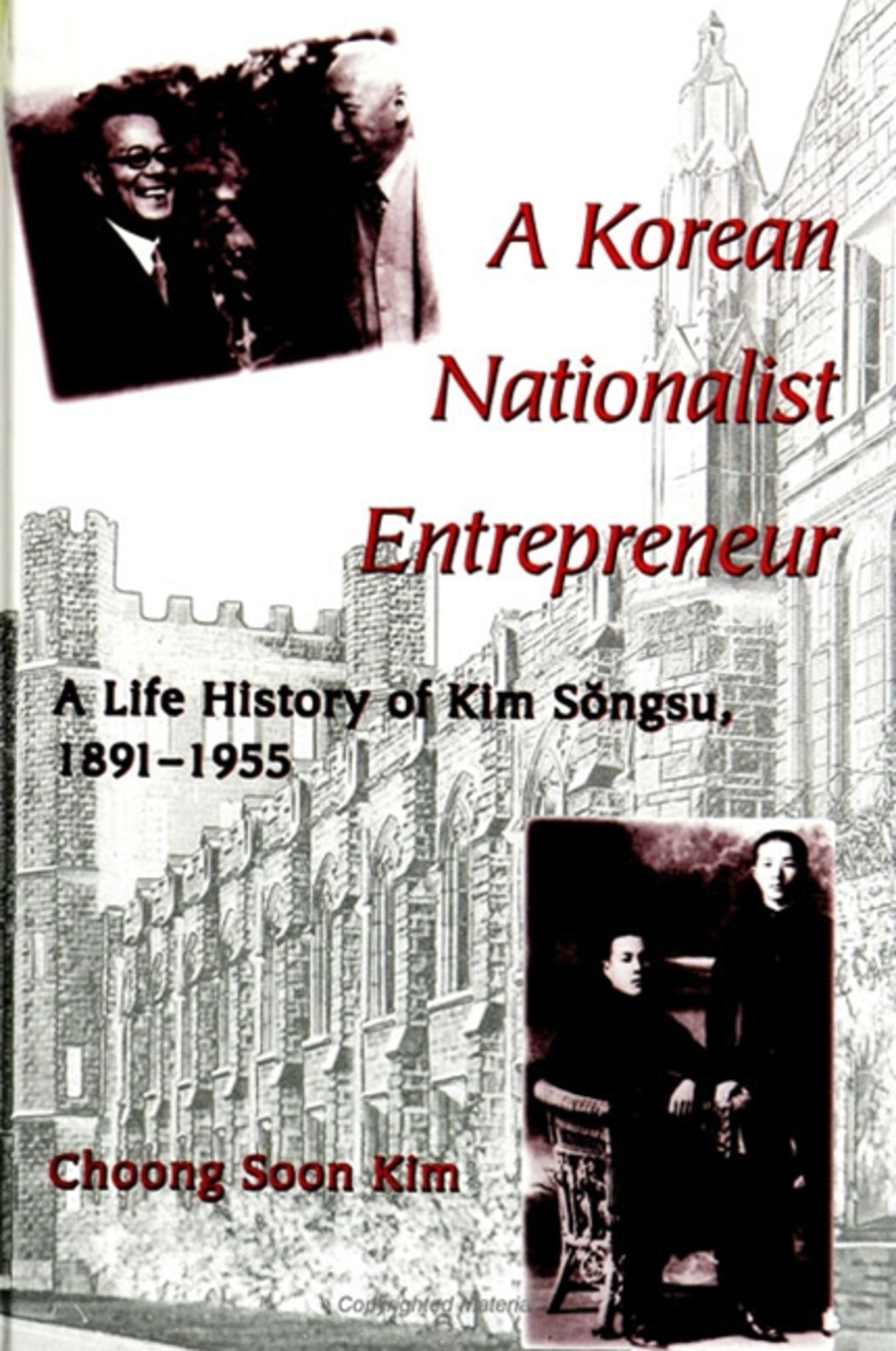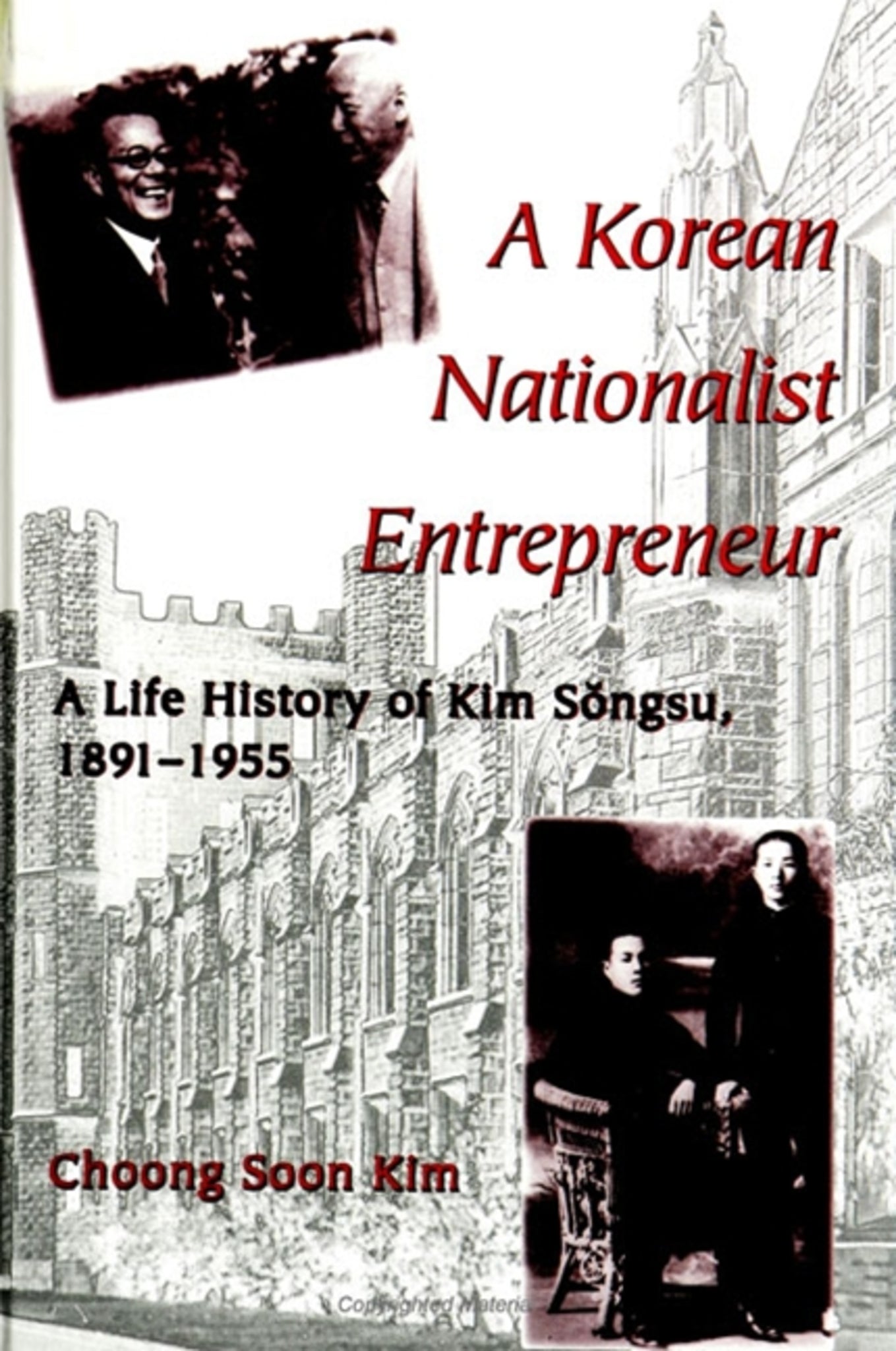We're sorry. An error has occurred
Please cancel or retry.
A Korean Nationalist Entrepreneur

Some error occured while loading the Quick View. Please close the Quick View and try reloading the page.
Couldn't load pickup availability
- Format:
-
30 April 1998

During the period of Japanese domination, Kim Songsu emerged as one of Korea's leading cultural nationalists. This life history details his contribution to the self-strengthening programs moderate nationalists advocated as the foundation for Korea's independence.
This book delineates the drive for Korean modernization by cultural nationalists during the colonial era in the early twentieth century. The cultural nationalism movement, led by moderate nationalists, eschewed overt resistance to Japanese imperialism and advocated self-strengthening programs to lay the foundation for future Korean independence. To describe this movement, this book focuses on Kim Sŏngsu and his various projects for Korean modernization. The author provides a narrative that includes encapsulated stories and sheds light on the Japanese colonial policies concerning Korea.
A Korean Nationalist Entrepreneur examines Kim's projects in chronological order, reflecting historian Carter J. Erkert's statement that Kim's life history has been so closely intertwined with some of the deepest currents of modern Korean history itself. The book describes how Kim took over and developed a post-elementary school, founded Korea's first modern textile firm, established one of Korea's major newspapers, and established Posong Junior College (which later became Koryo University). In 1946, after Korea's liberation from Japan, Kim became a pivotal figure in the conservative Korean Democratic Party, which became the main opposition party in Korea in the 1950s. He eventually became vice president in 1951 under Syngman Rhee.


"Choong Soon Kim's well-written book weaves a history of Korean capitalism and a history of an important and controversial man into a single narrative; in so doing, he reveals the values of both. This enjoyable study will be of interest to all students of Korea and especially those looking for a fresh perspective on the complicated relationships between colonial histories and capitalism." — Roy Richard Grinker, Associate Professor of Anthropology and International Affairs, The George Washington University
Illustrations
Acknowledgments
Introduction
1. A Long Journey from Premodern to Modern
2. Education as a Means for Korean Modernization
3. The Establishment of an Enterprise for Korean Modernization
4. Publishing the Tonga Ilbo
5. The Establishment of Koryo* (Korea) University for Higher Education
6. Kim Songsu* and His Involvement in Politics
7. The Legacy of Kim Songsu*
Appendix A. List of Abbreviations
Appendix B. Chronology
Appendix C. Guide to Romanization
Notes
Bibliography
About the Author
Index



